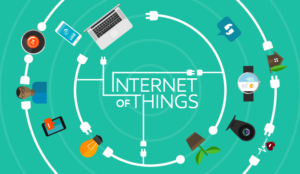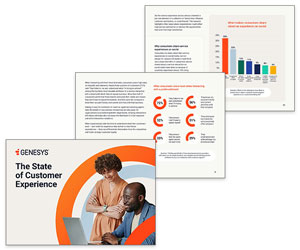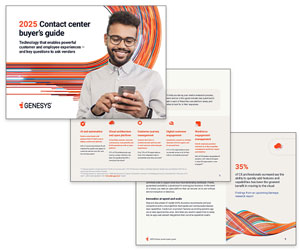Joseph Ciuffo of Genesys shares five examples of benefits that your organisation can obtain from implementing chatbots in the contact centre.
As Artificial Intelligence (AI) continues to change how work gets done and who does what, its larger impact will be in augmenting human capabilities – not replacing them.
Humans are intuitive; they engage with customers using unique personal qualities, creativity and social skills. Bots offer speed, scalability and quantitative capabilities that humans can’t match. Together, they deliver the best customer experiences and business outcomes.
A Harvard Business Review survey of 1,075 companies in 12 industries found that as those companies optimised collaboration between humans and AI, their AI initiatives performed better in terms of speed, cost savings, revenue or other operational measures.
Based on Genesys benchmark data, projected benefits of this “Blended AI” approach, include:
- Reduced handle time up to 70% and improved first call resolution (FCR) up to 55% with predictive routing
- Increased revenue up to 21% and agent utilisation up to 19% with proactive chat
- Up to 23.5% improvement in Net Promoter Score (NPS) with blended AI bots
Focus on the Sure Wins With Blended AI
Here are five time-saving and cost-reducing ways that bot–human collaboration pays off.
1. Personalised Self-Service
Phone calls into contact centres about simple problems continue to decline. Yet expectations of self-service for voice and digital channels are increasing.
Self-service engagement costs 25 to 75 times less per transaction than agent interactions. It also enables faster service, reduced call volumes and improved FCR.
But the key to an optimised solution is assisted service that’s tightly integrated with self-service – whenever customers seek it.
Blending AI with human agents in an omnichannel environment gives self-serving customers the option to easily connect with an agent. This approach passes along all the information and context collected by the AI, including history, intent and predicted next steps.
2. Improved Employee Engagement and Job Satisfaction
According to AON Hewitt, 62% of all workers are disengaged. And that leads to increased turnover, absenteeism and lower customer satisfaction.
Increasingly, contact centre agents are millennials who value flexible work schedules, access to self-management tools, and new ways to receive recognition and professional growth.
With blended AI, you can manage every aspect of the employee life cycle.
Start with simulation for recruitment using “what-if” scenarios that support hiring, onboarding, ongoing performance analysis, and personalised training and development that incorporates the voice of the employee into your strategy.
3. Knowledge Gaps Identified to Build More Effective Teams
With machine learning capabilities, you can define customer and agent attributes that drive successful business outcomes.
These defined outcomes can correlate with key performance metrics from a customer satisfaction or sales point of view – while still referencing traditional operational metrics like service level and agent occupancy. You can target training for maximum impact with minimum investment.
4. Virtual Assistants Partnered with Customer Service Employees
Better-equipped employees mean better customer experiences. By actively listening and analysing the content and context of a live interaction, virtual assistants provide employees with prompts, hints, knowledge articles and even special offers based on real-time interpretation of the interaction.
In addition to speeding problem resolution, these virtual assistants use machine learning to predict more ways for employees to serve the customer, including product up-sell. Customers receive the right level of service at the right time, curated to their specific needs.
5. More Qualified Leads Converted Into Paying Customers
No business can engage with all leads all the time. It’s critical to understand customer journeys, knowing when to engage and even intercept carts on the verge of abandonment.
Through real-time customer journey mapping, blended AI lets you detect which prospects or customers need support. It pinpoints who has a question and when you should engage.
Maybe a visitor is just hesitant to choose a product or service but there’s something you can do right now to help. You can now proactively identify which agent to engage with – bots, humans or a combination of the two – to improve the customer experience, NPS and business outcomes.
Author: Robyn Coppell
Published On: 14th Jan 2019 - Last modified: 15th Jan 2019
Read more about - Guest Blogs, Genesys


















